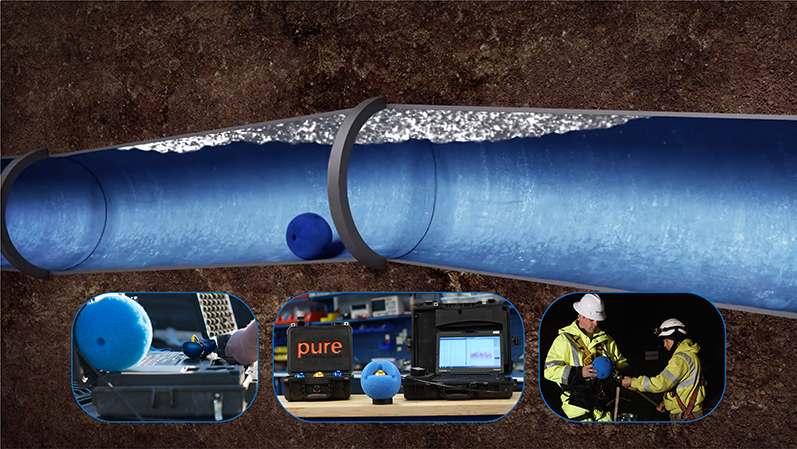Dubai, UAE, 8 April 2025: Smart Ball technology helped Dubai Electricity and Water Authority (DEWA) save AED 12 million in 2024 after preventing the loss of 1.34 million cubic metres of water by detecting leaks in underground pipelines, which are usually difficult to detect using traditional techniques. Since its adoption in April 2021 up until the end of 2024, the innovative technology detected 180 leaks in the water transmission network in Dubai. This technology reduces operational expenses as small cracks in water pipelines are addressed before they increase in size and cause further water wastage.
“In line with the Dubai Integrated Water Resource Management Strategy 2030, we adopt innovation, the latest technologies and smart and digital systems to develop innovative experiences to increase the efficiency and reliability of water networks and meet Dubai’s accelerated growth. Our efforts have resulted in the consolidation of DEWA’s excellence worldwide in reducing water losses. DEWA has achieved competitive results that surpass prominent European and American companies. In 2024, water network losses were reduced to 4.5%,” said HE Saeed Mohammed Al Tayer, MD & CEO of DEWA.
Abdullah Obaidullah, Executive Vice President of Water & Civil at DEWA, said:”DEWA’s cadres have developed innovative and automated systems to monitor the network around the clock. We utilise the smart grid to develop state-of-the-art infrastructure for managing facilities and services using disruptive and Fourth Industrial Revolution technologies.”
The Smart Ball system consists of a small diameter sphere with a highly sensitive acoustic sensor that is inserted into the water network, where it travels freely, driven by the water flow. It detects sounds generated by leaks and identifies gas pockets or anomalies, which have unique characteristics. Once the Smart Ball is extracted, the compiled data is analysed by software using mathematical algorithms showing the precise location of leaks, gas pockets or anomalies. The Smart Ball travels inside transmission pipes at around three kilometres per hour and can inspect over 35km in one day without affecting water flow.








